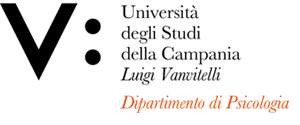Olimpia MATARAZZO
Insegnamento di PSICOLOGIA DEL PENSIERO
Corso di laurea magistrale in PSICOLOGIA DEI PROCESSI COGNITIVI
SSD: M-PSI/01
CFU: 8,00
ORE PER UNITÀ DIDATTICA: 56,00
Periodo di Erogazione: Primo Semestre
Italiano
| Lingua di insegnamento | ITALIANO |
| Contenuti | Parte I - Le articolazioni del pensiero umano: ragionamento; decisione; soluzione dei problemi; simulazione mentale; rappresentazione delle conoscenze; il pensiero “esperto” e il pensiero “ingenuo”. |
| Testi di riferimento | Parte I: |
| Obiettivi formativi | Il corso, articolato in due parti, si propone di fornire una panoramica degli ambiti di pertinenza della psicologia del pensiero e di approfondire lo studio del ragionamento, facendo riferimento alle ripercussioni di tale studio sulla concezione della razionalità umana |
| Prerequisiti | Conoscenza di base della psicologia generale |
| Metodologie didattiche | Lezioni frontali con modalità interattiva: gli allievi dovranno risolvere problemi inerenti alle tematiche del corso e discutere i testi proposti |
| Metodi di valutazione | Prova orale. |
| Altre informazioni | Saranno disponibili le diapositive delle lezioni, che costituiscono parte integrante del programma d’esame, e gli articoli scientifici. |
| Programma del corso | E’ stato già descritto |
English
| Teaching language | Italian |
| Contents | Part I – The topics of human thought: reasoning, decision-making, problem solving, mental simulation, representation of knowledge; naïve thinking and expertise. |
| Textbook and course materials | Parte I: |
| Course objectives | The course, divided in two parts, aims to provide an overview of the main topics of the psychology of thought and to deepen the study of human reasoning. |
| Prerequisites | Basic knowledge of general psychology |
| Teaching methods | Lectures with interactive mode: student will solve problems related to the topics of the course and discuss the proposed papers. |
| Evaluation methods | Oral exam. |
| Other information | The course slides, which are an integral part of the exam program, and the scientific papers will be available. |
| Course Syllabus | Already described |








